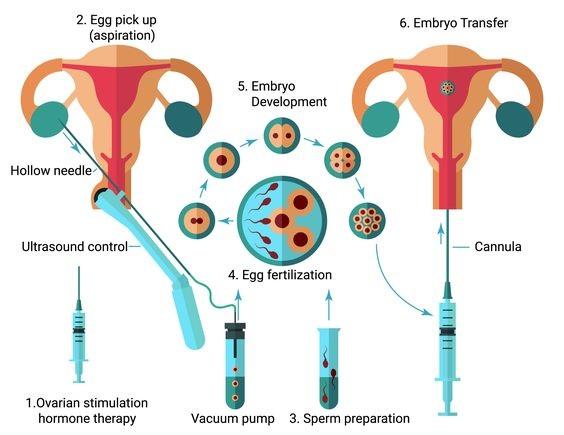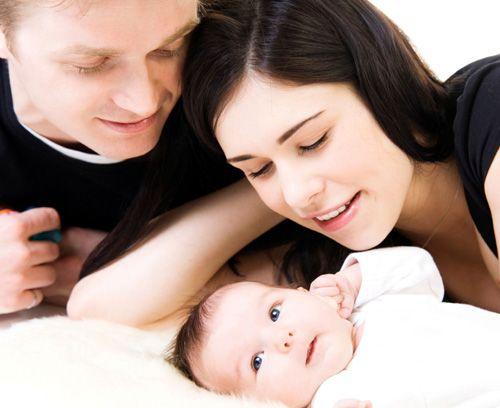- Legally Certified Assisted Reproduction Technology
- High IVF success rates of 99% with assisted Donation
- Offers IVF at a lower cost from CAD 7,700 to $11,100 only
- Ideally Located for all means of transportation
- Free First consultation: Book an appointment
- Contact us & Get the best IVF treatment 919311850412 Email: info@fertilityworld.in
Infertility affects one in every six heterosexual couples in Canada. For same-sex couples, clinical options (IVF) are often the only possible option to have a baby. But the treatments don’t come cheap, especially the most common and the most effective treatment, in-vitro fertilization (IVF). Here’s what you need to know about your options.

In vitro fertilization (IVF) is an assisted reproductive technology (ART) that people looked upon as a treatment for infertility, to fulfill their losing Dreams into reality becoming a parent. The cost of IVF treatment in Canada can become exponential and out of its reliable reach for some people.
There is no guarantee that it will be successful, however, in the Fertility World, it can significantly increase the probability of getting pregnant with a 99% success rate using assisted Donor gametes. We recommend to all hopeful people to consult with a physician that you trust who can discuss your specific case and explore if IVF is the right option for you. When considering the cost of IVF in Canada, be sure to consider your tax and financing options too.
A complex series of fragile procedures and medications are required during the cycle of IVF treatments and sometimes more than one IVF cycle is required to conceive a baby. Many hopeful couples, LGBT communities, and single parents do thorough research to find out how much IVF treatments can cost them in Canada, and how to financially plan for those costs. Therefore, the Fertility World IVF center in Canada makes an easy route for all the hopeful parents to understand the things that you should know about IVF costs in Canada. If you’re Canadian, or Foreigners seeking Canada as your destination for IVF treatments, you should know these important keywords mentioned below in your research:
How much does IVF cost in Canada?
Most of the time, the costs mentioned are often approximate and will vary from clinic to clinic, location to location, sophisticated instruments, standards of the laboratories, fertility medication, and its experienced professionals. The approximate inclusive cost of one IVF treatment cycle (first attempt) ranges between CAD 7,700 to CAD 11,100. The medication also can cost anywhere between CAD 2000 to CAD 6,000 plus.
There’s a huge difference between those two cost figures, we know. Here’s why: Pricing varies from clinic to clinic. Some low-cost IVF clinics have opened in Canada such as the Fertility World, but how much you pay also depends on the medication required, about 50% of IVF costs are for medications. Expensive Fertility Medication includes the following:
- Follicle Stimulating Hormone (FSH),
- Luteinizing Hormone injections (LH)
- Human chorionic gonadotropin (hCG) injection
- Antibiotics to treat possible complications such as pelvic infections during the retrieval process;
- Drugs to produce higher-quality eggs;
- Prenatal vitamins;
- Vitamin D and folic acid for a healthy pregnancy.
The cost also covers the following:
- Storage,
- Retrieval,
- Embryo transfers, and
- Genetic testing to screen for the best embryo.
- Fertility tests, which you would do before starting IVF if you are having trouble conceiving, are generally covered by the province.
IVF gets expensive because most provinces provide fund assistance for only one round (mentioned below) — and in some cases, it takes more than one IVF cycle to get pregnant. This can add financial stress on top of the emotional stress that puts a lot of pressure on patients.
What is the biggest factor for IVF complications?
Age is the biggest factor for men and women because, as we know, sperm and egg quality decreases as we get older. The best reproductive age for women is between 21 to 35 years and for males up to 50 years.
What is the cost of Donor eggs or sperm in Canada?
If your fertility conditions require donor-assisted reproduction, it adds cost to IVF. The cost of sperm in Canada varies from $400 to $700, depending on where you live (the closer you are to a metropolitan area, the less shipping and handling you’ll have to pay).
Finding an egg in Canada is harder since it is illegal to purchase eggs. Parents have to find a donor, and typically only a friend or family member would be altruistic enough to do this. Otherwise, parents have to travel outside of Canada. However, in this case, the Fertility World stands with you and arranges a healthy egg donor from its database at a lower cost.
What factors can impact the cost of IVF?
- Failure of IVF at first cycle: This failure can result due to certain factors such as advanced age (above 40 years), medical history, fertility conditions, and lifestyles )smoking, drinking alcohol, use of drugs, dieting pattern, and fitness level.
- Standards of Fertility Medications: Dosage and brand of medicine, generic versus non-generic options.
- If a surrogate mother is required
- If donor assisted gametes are used (Eggs or sperms)
Which costs can Provincial Healthcare assist in Canada?
In Canada, there are currently four Canadian provinces that provide financial help to its residents who are undergoing IVF treatments or any fertility treatments. They are:
- Ontario: It can cover one IVF treatment cycle per lifetime for all female patients under the age of 43. For this financial assistance, one must hold a valid Ontario Health card. Fertility drugs are not covered under this plan.
- Manitoba: It can cover fertility treatment tax of up to 40%, including IVF to a maximum of $8000.
- New Brunswick: Provides special assistance Fund, a one-time grant of $5,000 towards infertility treatments. Only qualified residents can avail of this assistance.
- Quebec: It provides tax credit assistance to its resident’s infertility treatments with valid qualifications.
Submit fertility medical expenses of IVF to Medical Expense Tax Credit via your income taxes.
You may be eligible to claim medical expenses that you have paid during IVF treatments, your spouse or common-law partner, and certain related persons- any dependents that are listed on your income tax forms.
IVF treatments overview at the Fertility World in Canada
During IVF treatments- the eggs and the sperm are combined in a fertility laboratory (in test tubes or Petri plates) under the culture medium and kept in an incubator to allow the sperm to fertilize the egg.
Note: With IVF you can use any combination, your eggs and Donor sperms, Donor egg, and partner sperms.
The fertilized egg called an embryo is transferred into the uterus for carrying a pregnancy.
Let’s discuss the steps involved in IVF treatments:
1. Consultation: Once you book an appointment, at no time our coordinators will schedule your direct consultation with our fertility experts through phone calls or consult in person based on your location. Our experienced Doctors will evaluate your fertility problems or rectify your conditions on your previous fertility report. Our experts answer all your queries with a very friendly attitude and provide you a comfortable environment. Based upon your conditions, our Doctors will suggest the next step.
2. Ovulation: To prepare for an assisted reproductive procedure, IVF treatment using your eggs, you will require hormone treatment to control your egg production (ovulation). For 8-14 days you (female) would be injected with fertility drugs such as follicle-stimulating hormone (FSH), luteinizing hormone (LH). It boosts the natural levels of these hormones normally present in your body to encourage your body to produce more than one egg to develop (stimulation) per month.
This is done to prevent unpredictable ovulation, which would make it necessary to cancel that in vitro attempt. This is typically done using one of two similar types of gonadotropin-releasing hormone analog (GnRH agonist or GnRH antagonist). The following are two examples of how ovulation can be controlled:
- You first receive about 10 days of nasal or injected GnRH agonist that “shuts down” your pituitary. Next, you get daily ovary-stimulating hormone injections and are closely monitored for 2 weeks before egg retrieval. At home, you or your partner injects you with gonadotropin or follicle-stimulating hormone (FSH) to make your ovaries produce multiple eggs (superovulation).
- You start treatment with FSH injections and then add the GnRH antagonist injection after about 5 days, which stops the production of luteinizing hormone (LH) within an hour or two.
After a week of ovulation treatment, our specialist checks your blood estrogen levels and uses ultrasound to see the maturation of the egg in the follicles. In the second week, your dosage may change based on the test results. And you are monitored frequently with transvaginal ultrasound and blood tests by the experts.
3. Egg retrieval: Human chorionic gonadotropin (hCG) injection is injected to stimulate the follicles to mature. The mature eggs are picked 34 to 36 hours later using needle aspiration guided by ultrasound. You will usually have pain medicine and sedation for this procedure.
4. Sperm collection: Sperm is collected through masturbation. or by taking sperm from a testicle through a small incision. This procedure is done when a blockage prevents sperm from being ejaculated or when there is a problem with sperm development. Sperm may have been collected and frozen at an earlier time. Then the sperm are thawed on the day the eggs are collected.
5. Fertilization and embryo transfer: The eggs and sperm are fused and incubated with careful temperature, atmospheric, and infection control for 48 to 120 hours.
After 2 to 5 days of fertilization, the best stage fertilized eggs are selected. One to three are implanted in the uterus using a thin flexible tube (catheter) that is inserted through the cervix. You can suggest those remaining embryos be frozen (cryopreserved) for future attempts or you can donate and make some profit.
The pregnancy blood test: After about two weeks of embryo transfer, a blood test is conducted to measure the levels of human chorionic gonadotropin (hCG), which indicates a positive pregnancy. After confirmed pregnancy, you can carry your pregnancy as naturally as others, and continue your daily activities. You will be scheduled for a check-up to know the health and heartbeat of your baby.
Canada is a very friendly IVF treatments destination, and the Fertility World makes the best out of it for its patients. For more information call us now!



One thought on “IVF Cost in Canada | Fertility Treatment Cost in Canada”